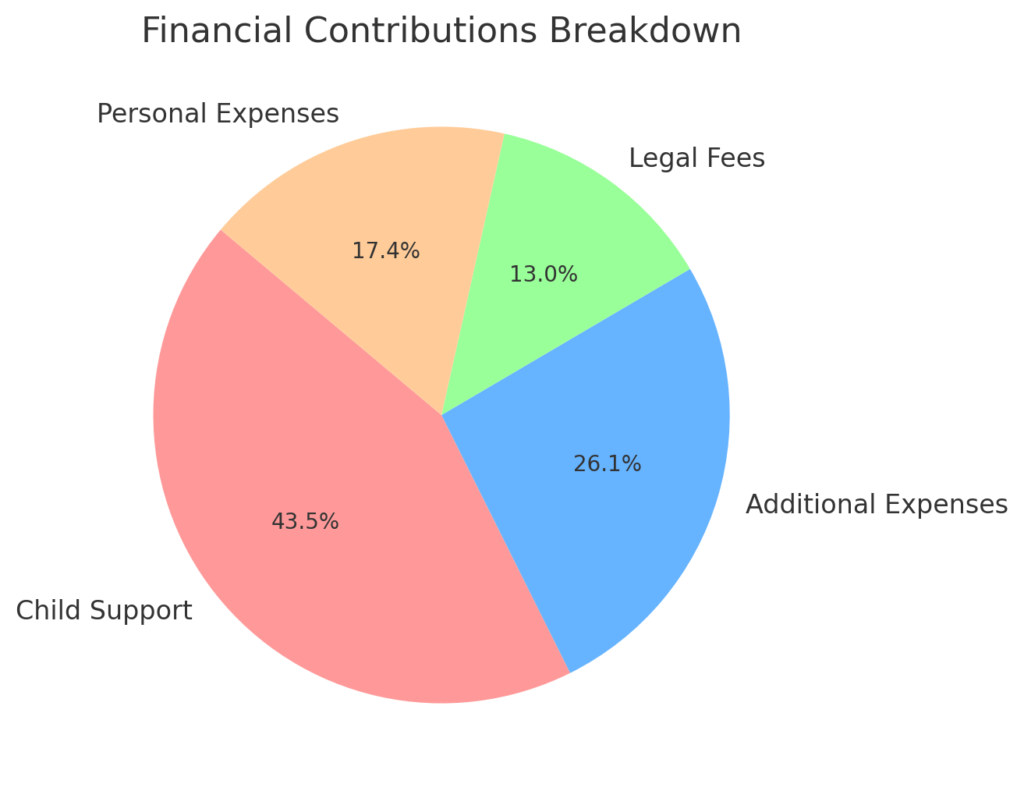It’s frustrating to feel like your hard-earned money disappears the moment you make it. If you’re constantly saying, “The mother of my child is financially draining me,” you’re not alone. Many parents struggle with this, whether it’s due to child support, unexpected expenses, or financial expectations that never seem to end. It’s tough balancing responsibilities while also trying to keep your own financial stability intact. So, what can you do to get control of the situation without hurting your child or causing unnecessary conflict? Let’s break it down.
Assess the Situation Honestly
Before reacting, take a step back and look at the bigger picture. Are you genuinely being taken advantage of, or are the financial demands reasonable? It’s easy to feel overwhelmed when money is constantly going out, but it’s important to separate emotions from facts.
Ask yourself:
- How much am I contributing, and where is the money going?
- Are the expenses legitimate, or are they excessive?
- Do I have legal obligations, such as court-ordered child support?
- Am I covering extra costs that should be shared?
Once you have a clear picture, you can figure out if you’re dealing with an unfair situation or if it’s just the reality of raising a child.

Set Clear Financial Boundaries
If the mother of my child is financially draining me, boundaries are essential. Just because you’re a parent doesn’t mean you have to be a never-ending bank account.
Here’s what you can do:
- Stick to legal obligations – If you have child support arrangements, pay them, but don’t go beyond what’s necessary unless you truly want to.
- Limit extra expenses – If you’re constantly covering additional costs, like her personal bills or unnecessary luxuries, it’s time to say no.
- Communicate expectations – Make it clear what you will and won’t pay for, especially if money is being misused.
If she pushes back, remind her that financial responsibility should be shared, not placed entirely on one parent.
Use Legal Protections If Necessary
If the mother of my child is financially draining me unfairly, legal protections might be your best option. If child support payments seem excessive or unfair, you can request a modification through the court. This is especially helpful if:
- Your income has changed significantly.
- You’re paying for things that aren’t part of the agreement.
- She’s demanding more than what’s legally required.
Make sure to keep all financial records. If she claims she needs more money, you’ll have proof of what you’ve already contributed. Courts rely on facts, not emotions, so documentation is your best defense.
Consider Mediation Instead of Fighting
Fighting over money can lead to long-term resentment, and that doesn’t help anyone—especially your child. Mediation is a way to find a fair financial arrangement without going to court.
A neutral mediator can help with:
- Setting realistic expectations for both parents.
- Finding a balance between financial contributions.
- Reducing hostility and improving communication.
Mediation costs less than legal battles and often leads to a solution that works for both sides.
Find Ways to Reduce Financial Stress
If the mother of my child is financially draining me, improving your own financial situation can help ease the burden. You might not be able to change her spending habits, but you can take steps to protect yourself.
Some strategies include:
- Creating a detailed budget – Knowing where your money goes helps you control spending.
- Increasing your income – A side hustle or better-paying job can reduce financial stress.
- Cutting unnecessary expenses – If you’re paying for things you don’t need, redirect that money toward your child instead.
Taking control of your own finances makes it harder for someone else to manipulate you financially.
Stop Enabling Bad Financial Behavior
If you always step in to cover extra expenses, she might continue expecting it. The best way to stop being financially drained is to stop enabling irresponsible spending.
Instead of giving extra money, offer non-cash solutions:
- Buy essentials directly, like diapers, clothes, or school supplies.
- Contribute to things that directly benefit your child, like tuition or medical costs.
- Say no to unnecessary requests, especially if they don’t involve your child.
Setting these boundaries forces her to take responsibility for her own finances.

Protect Your Mental and Emotional Well-Being
Dealing with financial strain from a co-parent can be mentally exhausting. It’s easy to feel frustrated, angry, or even guilty. But letting those emotions take over won’t fix anything.
To protect yourself:
- Don’t let money control your peace of mind.
- Seek support from friends, family, or even a therapist.
- Focus on being a good parent rather than arguing about money.
Your child needs a stable, happy parent more than they need extra financial contributions. Taking care of yourself helps you show up better for them.
Final Thoughts
If the mother of my child is financially draining me, taking action is necessary. You’re not wrong for wanting fairness, and setting boundaries doesn’t mean you’re neglecting your child. By being smart about your finances, using legal protections when needed, and refusing to be taken advantage of, you can regain control over your financial future.
Raising a child is a shared responsibility. If one parent carries all the financial weight, it’s not just unfair—it’s unsustainable. Stand your ground, prioritize your child, and make financial decisions that benefit both of you in the long run.








